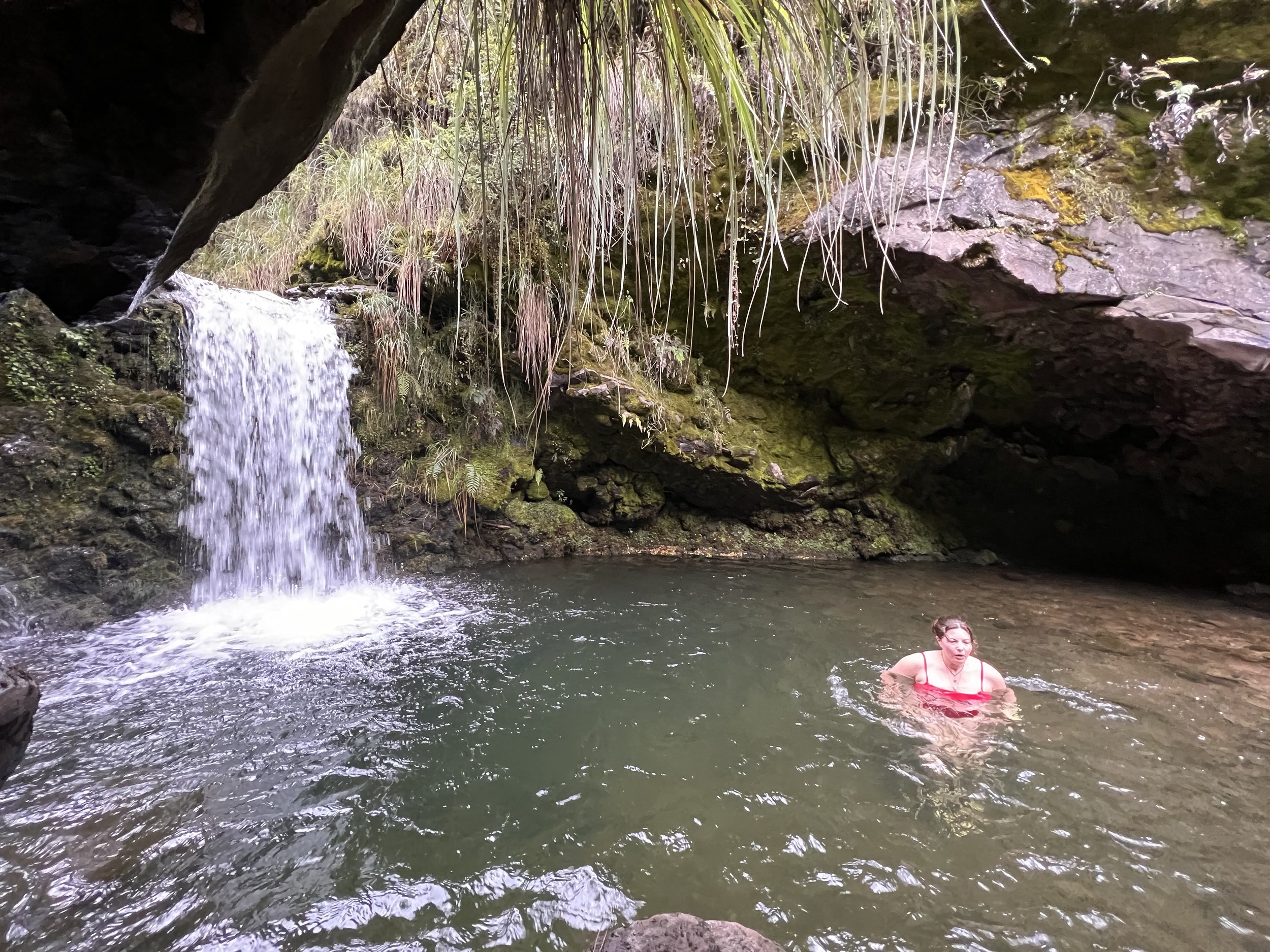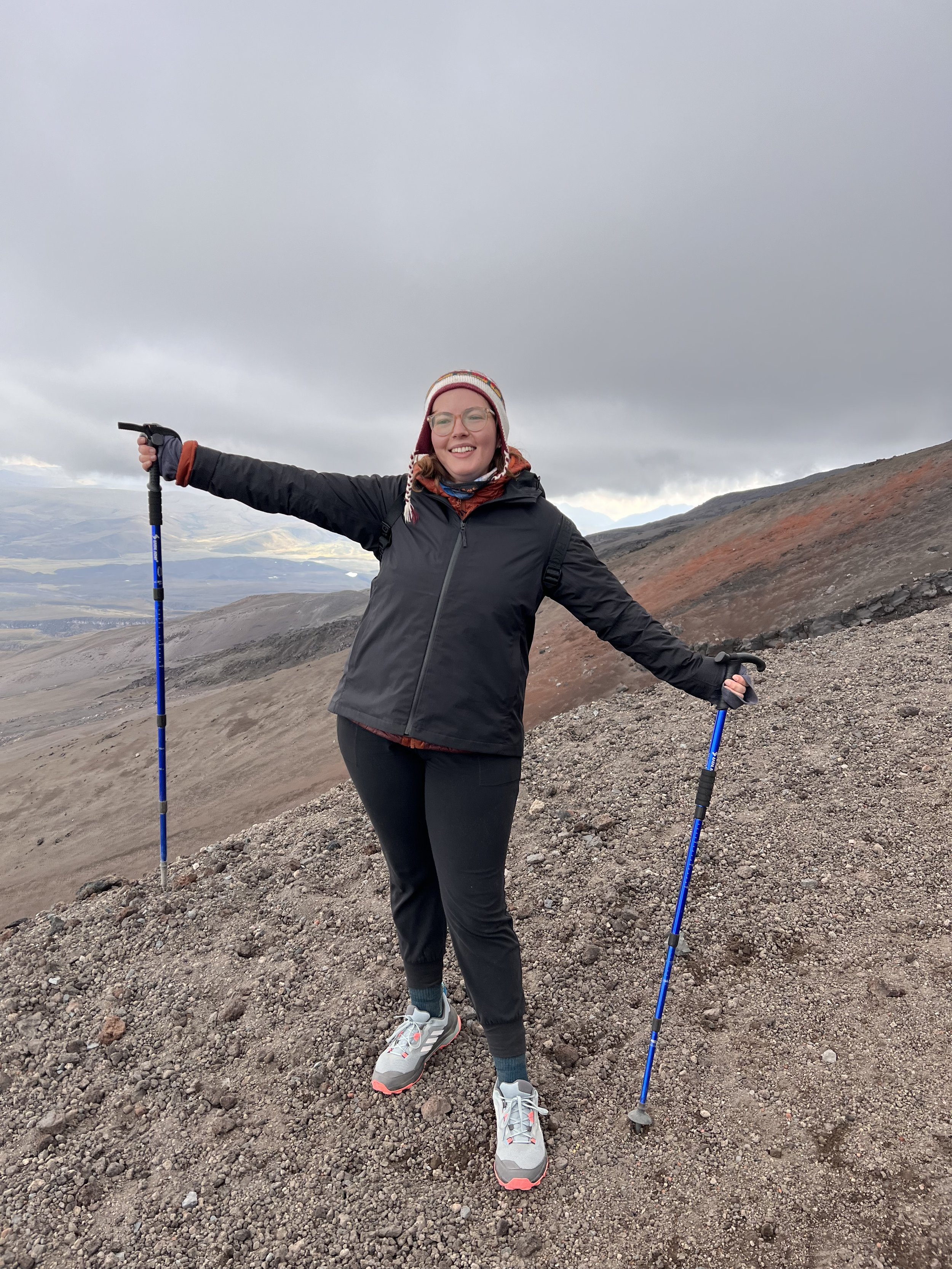Cotopaxi, Ecuador
Day 8
Today, I headed off to the Secret Garden Hostel in Cotopaxi, roughly 2 hours south of Quito. They have a 3 day, 2 night deal with all meals, snacks, and activities included. From what everyone’s been saying, this place is the best hostel. They offer free, direct transportation from Secret Garden Quito, so I went there in the morning, saying a loving farewell to Rosa and Mateo who hosted me for my first week.
The shuttle was packed with other travelers but comfortable as we made our way through the countryside. The main roads in Ecuador are paved and smooth but as soon as we headed off the main road, we bumped and bobbed around.
I read that hostels are like summer camp but for adults and it is so true. Upon arrival, we were greeted by Nico and shown around the campus - the jacuzzi, the composting toilet, the volcanos and mountains that surround us, and then brought inside to a large table for more information and lunch.
After lunch, we had the option of going on a hike through the forest to see two waterfalls and, if up for it, swim in one. When you solo travel, you can be any person you want to be. For me, I’m the person who swims in the freezing waterfall, every time. The hike was strenuous. We wore rubber boots to get us through the mud and water. There were times I felt a bit scared but I thought about the time Sarah, Eliza, and I hiked down a canyon and remembered that my body is capable. Slow and steady.
After about two hours of hiking up the river, we made it to the swimming waterfall. I stripped down to my bathing suit and jumped in (thanks to Sailor, the volunteer who talked me through it). I was the only one in our group of 30 to jump in. 100% worth it.
Day 9
Cotopaxi is the third highest active volcano in the world. I hiked it. 15,953 ft (4865m) to the base camp. It wasn’t easy. Most people commented on the lack of air impacting their lungs. For me, my legs felt like lead. I took small steps upwards. Even with poles, my body felt heavier, and difficulty breathing didn’t help. Us active Westerners were humbled by the gravity of this volcanic trek. I decided to stay and the base camp and skip the further upward ascent to the glacier, happy to sip on hot chocolate and nibble on peanuts. I felt light headed and slightly nauseous. It was raining/snowing on our way down. The sandy path downwards was made for sliding and again, I had to trust my body was capable. I learned heals down toes up.
After a long dip in the hot jacuzzi and a cold shower, I took my kindle to the main house and made a hot chocolate and curled into a hammock and read. Lazy Point, the book I’m reading, describes migratory patters from the perspective of Lazy Point, a small inlet near where I’ve lived in the Hamptons, Long Island, NY. The author was discussing the impacts of our economic structures on the environment. The fact that we view the environment as an externality - not included in the price of goods - means we are not actually paying an accurate price. It made me think about my IHP trip as we learned about sustainable development and questioned if it’s even possible. “We are not responsible for grand conclusions, yet.”
The land in this volcanic valley is dark, rich with nutrients from the volcano. Do the plants here fear living so close to the volcano or do they just enjoy the fertile soil? If humans are so special because we can predict the future, what is our responsibility? What will it take for us (meaning Westerners) to actually live into our responsibilities for the future and for the life that exists around us?
Later that evening, more friends from the hostel gathered in the main room. We sat together, drinking Chilean wine, eating Ecuadorian arepas, enjoying each other’s company. There’s this feeling we get sitting around a table of other people we don’t know but we also know through the shared experience we are having. There’s a feeling in the heart and belly, a warmth that doesn’t come from fire but from the smile of stranger who is as familiar as our own reflection.








